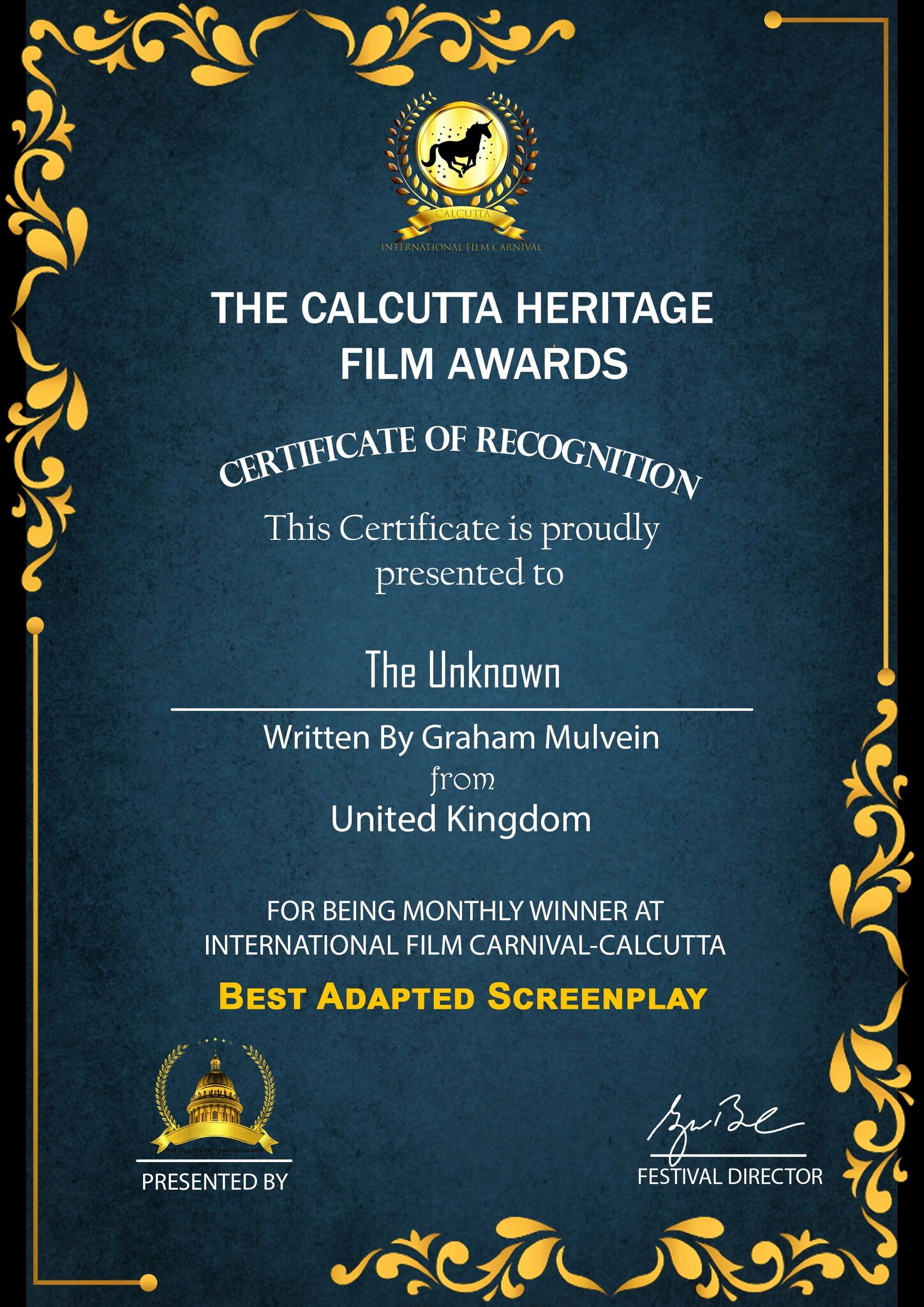THE STAGE 32 LOGLINES
Post your loglines. Get and give feedback.

THE UNKNOWN
By Graham Mulvein
As the First World War comes to a close, an idealistic Army chaplain works to honour the dead by spearheading a campaign which is initially opposed by the military and the establishment, before finally being recognised as a universal symbol of unity and perseverance, but it's a race against the clock. Based on actual events, this remains to this day, the greatest mystery of the First World War!
SYNOPSIS:
THE UNKNOWN
Synopsis
The year is 1955.
David Railton falls to his death from a moving train. Gathered onlookers have no idea of just what this man achieved in his life.
As his story begins to unfold, we are taken back to the year 1916, to the Battle of the Somme, in the hells-cape of the First World War.
As a military chaplain, Railton is front and centre in the midst of the carnage. He's not there to fight, but he's damn well in as much danger as anyone else.
As his time in the Great War progresses and finally, mercifully, comes to its end, Railton is struck by the terrible notion that hundreds of thousands of young men lie buried and anonymous in the fields of France and Flanders.
On his return to his family in England, Railton finds the once peaceful nation a much changed place. A cynicism exists now, where once only hope existed, a nation where families have been decimated by the Great War.
Sons, husbands and brothers have been wiped-out indiscriminately. Troubled by the number of families whose loved ones never returned and as such, now have no place to grieve, Railton decides to put a plan in place to change that.
His plan is to inter the body of one of those unknown comrades, creating a place where rank, race and class will not matter in a grave within Westminster Abbey. A grave where everyone can attach their grief, and so he begins to campaign tirelessly, writing letters to military brass and the church.
When news of Railton's idea finally reaches King George V, after some initial misgivings, just one month prior to the unveiling of the Cenotaph in London’s Whitehall, the plan is finally given the go-ahead.
The task is then to locate an unknown warrior’s body and ensure that the selection is carried out in a meticulously secretive fashion and deliver it through Northern France, back home to Great Britain.
On the 11th November, 1920, The Tomb of the Unknown Warrior is unveiled to King and country in Westminster Abbey and David Railton's legacy is finally cemented.
THE BLACK LIST COVERAGE
'Visceral, emotional, yet surprisingly intimate, this war drama subverts expectations of the genre by focusing not on the horrors of war, but on how we honour the sacrifices of those who fell and learn to heal from the wounds we suffered.
The premise is instantly intriguing, tapping into moviegoers fascination with history and war, while also engaging their love of mystery by lifting the curtain on an untold part of that history. And as protagonists go, David Railton is a paragon of nobility -- selfless, heroic, and dedicated to his goal of carving out some meaning and honour for the countless lives lost whom he bore witness to.
As much as its a story about a country coming together, it's also a story about this one man healing his own deep, internal wounds. It has incredible emotional potency. World War I may be a century in the past, but we feel the gravity of it in every scene, whether in the visceral, realistic depictions of battle, or the subtle, nuanced portrayal of the difficulties that soldiers -- and the nation -- faced upon returning home. There has always been -- and it seems, always will be -- space in the feature marketplace for movies about war. And with the recent success of films like 1917 and ALL QUIET ON THE WESTERN FRONT, it's clear there is an appetite for stories about this war in particular.
What distinguishes this spec from others in the space is that, while it certainly delivers on our expectation for big, visceral, action-driven war scenes, the story actually focuses on the elements of the period that exist off the battlefield -- the grief, loss, and unseen wounds that everyone carried with them after the Armistice, soldier and civilian alike. With a sharp, clear voice and a keen cinematic eye, this is a powerful, cathartic experience for any reader, British or not.
WE SCREENPLAY COVERAGE
This is a terrific concept for a film and the writer has done a fantastic job of bringing it to life.
It's not easy to find a fresh and interesting way to tell a story about one of the World Wars but this script manages to do so.
It tells an important story and is brimming with vital themes and imagery that are never more pertinent than they are today. David Railton achieved something beautiful that still resonates to this day, a little known legacy that deserves to be told. This script does an excellent job of doing exactly that.
This is a very well written piece of work from a writer with an excellent command of the material. A confident and always engaging script about a fascinating man and his quest to do something right after living through unspeakable horrors. A polished and recommended read.


Rated this logline
Rated this logline
Rated this logline
Rated this logline
Rated this logline
Rated this logline